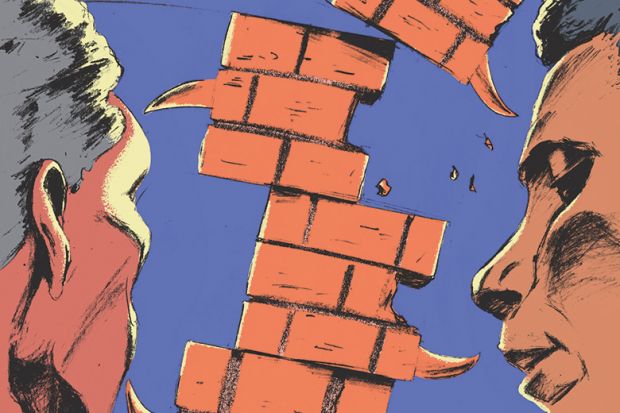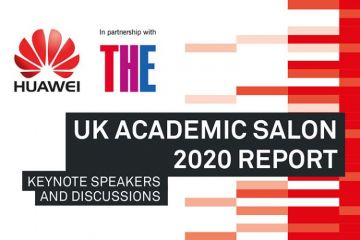Mino laik tokim bosman ol samting i bagarap. Translated from Papua New Guinean pidgin English, this means something like: “I don’t want to tell the boss that things are buggered.” For all the unfamiliar language, the concept is almost universally recognisable.
Since becoming bosman bilong yunivesiti (vice-chancellor) of a small university in the Melanesian nation, I have discovered that much of what happens here is surprisingly familiar. Many of the problems that academics face are similar to those confronting scholars in any Western university, only more extreme. But that greater extremity is enough to shed new light on familiar issues. A fine example of this is capturing and responding to the student voice.
Constructive feedback is a key component in the process of reflection and revision necessary to drive improvement in both universities and students. It may often be unspoken, but universities enter a covenant with their students. We offer them feedback on their academic work so that they can improve, while students increasingly reciprocate and express their views about the education that they are receiving. In recent years, screeds have been written about the nature of this bond, with many academics believing that the student voice has become far too powerful.
Here in Papua New Guinea, the student voice is traditionally more likely to be expressed through a war cry than through a student satisfaction survey. Last year, for instance, violent clashes with the authorities resulted in a student being shot and killed.
It should never require a death to focus minds, however. There are a host of good reasons for trying to capture student views, and this is what we have begun to do at my institution.
Good practice also requires that after introducing a new exercise you reflect and try to determine if you have achieved your desired outcome. Therefore, six months after introducing the idea of student feedback, we invited a panel of Australian academics to visit us to ask our staff and students what they thought about giving and receiving feedback. Their findings were illuminating.
In a land that boasts 1,000 tribes and 800 different languages, it is naive to talk about traditional practice. However, one ancient cultural norm dictates that younger generations do not criticise older ones. In many village communities, respect for elders and tribal leaders is much stronger than in the West. Hence, our students reported a reluctance to criticise their teachers, while academics admitted to feeling threatened by the empowerment of students.
But there is another problem that pushes in a rather different direction. Family, community and tribal bonds all remain very strong here, while the concept of nationhood is still fairly new and alien. Staff and students openly socialise within regional groupings. There are positive aspects to this: mutual support networks are highly effective. But it also gives rise to an endemic nepotism – known here as wantokism, from “one talk”: speaking the same language or being from the same tribe.
Hence, the feedback talks of academics showing favouritism towards certain students, and of revenge being taken by students who feel hard done by. While these are extreme cases, it is clear that feedback is respected and embraced only if the person providing the feedback is also respected.
In answering a question about anonymous marking, two of our academics misinterpreted the question. Their assumption was that it was the anonymity of the marker that required protection, to ensure that they were not targeted by vengeful students unhappy with the grades awarded.
This reversal of the common assumption may initially appear comical, but surely there are plenty of Western academics who have felt threatened by comments made by students. I certainly regularly recall comments written about me on feedback forms many years ago, partly because they were witty but also because their barbs still cling to my flesh. In more extreme examples, I have encountered Western academics shredding piles of feedback forms because they considered them contemptible.
We may not want to admit that there is an “us versus them” mentality between staff and students in the West, but it may be worth asking whether magnifying the student voice without also providing students with training in providing constructive criticism helps to build mutual respect or drives tribalism.
Academics are expected to be the adults and to take harsh criticism in their stride. But it is not that easy. My experience here has convinced me that, throughout the world, there should be a routine process of induction that covers the giving and receiving of feedback for every cohort of students, which also fully integrates academic staff.
In any language, it is always difficult telling the bosman (or bosmeri: bosswoman) that there are things that they could be doing to improve. But, equally, it is not always easy for the bosman to hear it.
John Warren is vice-chancellor of the Papua New Guinea University of Natural Resources and Environment.
POSTSCRIPT:
Print headline: Difficult conversations
Register to continue
Why register?
- Registration is free and only takes a moment
- Once registered, you can read 3 articles a month
- Sign up for our newsletter
Subscribe
Or subscribe for unlimited access to:
- Unlimited access to news, views, insights & reviews
- Digital editions
- Digital access to THE’s university and college rankings analysis
Already registered or a current subscriber?










